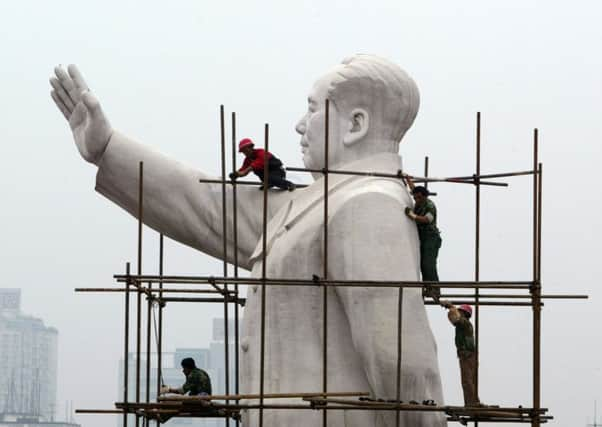Book review: Maoism: A Global History, by Julia Lovell


This is a book of almost constant pin-pricking. There is a narrative, commonly held, that Maoist China was a neutral, almost aloof, bystander. By looking at revolutions inspired by Mao in Cambodia, Peru, Vietnam, Indonesia, Korea, Zimbabwe and many other places, this work recalibrates an old story of the 20th century being dominated by the democratic West and the Soviet Union. There was – and the Left Bank intellectuals like Sartre, Foucault and Barthes, who became infatuated with Mao, would appreciate the irony – always a third term. China was exporting more than plastic toys and shoddy tops. One of the ironies this history highlights by taking such a global perspective is that Mao, a salty-tongued demagogue from a peasant background, who often appeared wearing clothes pockmarked with cigarette burns, became an icon to the likes of Andy Warhol and a beacon to the turtle-necks of academia.
If there is one lesson from this thorough account, it is that Maoism was very good at seizing power and very bad at wielding it. Its ability to be transfused abroad in part depended on the exact conditions of the success of the 1949 victory in China. Lovell is acute on how anti-imperial rhetoric stirred up similar movements elsewhere; she is equally acute that the conditions in China did not map easily on to other nations. The policy of “surrounding the cities from the countryside”, the nature of guerilla warfare and the necessity of having the agrarian peasantry on side made more sense in the China of the time than in later conflicts. In most cases – Nepal being her outlier – what Maoism exported was expedient, angry and ultimately unfulfilled. If the poorest live in the cities, the countryside is not the place to sow the seeds of revolution.
Advertisement
Hide AdAdvertisement
Hide AdIt also places the nudging from China to other territories in the context of the Sino-Soviet stalemate. One of the most – I don’t know if there is a word that combines farcical and ghastly – scenes involves Nikita Khrushchev, wearing armbands, swimming next to Mao, as the interpreter paddled between them. We have rather forgotten the split between the USSR and the PRC, and how their methods differed. Stalin and Mao were both military men; but when Stalin marched, Mao bided his time in the caves of Yan’an.
Stalin wooed various Western intellectuals, such as HG Wells, but Mao managed with one author – Edgar Snow, who wrote Red Star Over China – whose work inspired many more than The Little Red Book. In terms of both the post-colonial and the anti-capitalist, Mao’s regime was the alternative to the alternative. One of the other moments of levity in this grave tome is a description of the pulping of Mao’s Collected Works. Another, which cannot go unmentioned, is that one female African Maoist took the nom de guerre “Margaret Thatcher” while fighting aside someone who called himself “James Bond”. Lovell realises that there was something carnivalesque about Mao. One of the Black Panthers called him “the baddest mother***er on planet earth”. It obviously appealed to the Situationist International: rebellion was necessary. It was forbidden to forbid in Paris; it was dangerous to decline in Beijing.
Exposure to such incredible beliefs makes the experience, if anything, rather less awful for the reader. Although writers such as Frank Dikötter have systematically analysed the effects of Mao in power, less work has been done on the impact of China abroad. It is very useful indeed to have a proper academic dealing with these matters – such as, for example, the Indian government’s mistranslation of the Salwa Judum as “Peace March”, when it actually meant “Purification Hunt”. That kind of detail humanises the dehumanising of the global Maoist brand, on both sides. It also makes it more horrific. There is nothing spared here about how the Maoist insurgents were often the targets of despicable violence by the state, nor are the effects of Maoist governance made less grievous.
For a history so deeply sad and so enlightening, it ought to be mentioned that this account is also very well written. Some academic works can be terribly turgid, but this is smooth and cautious, almost wily in how the awful and the unbelievable are counterpointed. In looking at Maoism with wider eyes, the one thing that struck me about the various villains and revolutionaries was that history repeats itself, first as tragedy, then as plagiarism. The same slogans are repeated with a kind of hypnotic genuflection.
It is a dreadful thing to say, but you can’t deny that Mao knew how to write a headline-grabbing phrase.
Maoism: A Global History, by Julia Lovell, Bodley Head, £30